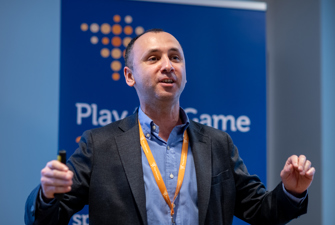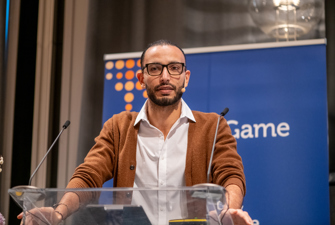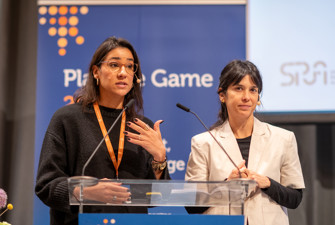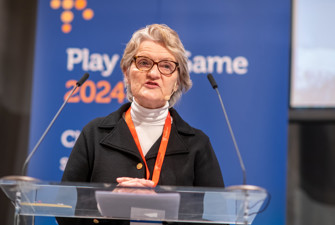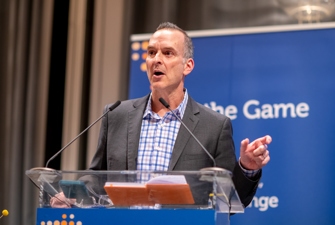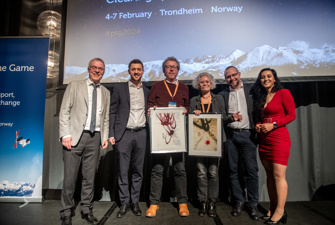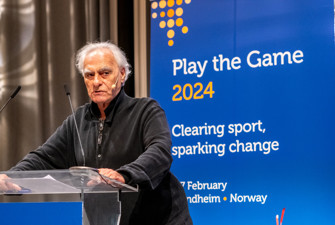Could voice analytics be anti-doping’s new weapon?
Participants in a session at Play the Game 2024 got an insight into a new voice analytics tool that has been tested on
officials involved in amateur boxing to assess whether the level of integrity risk they present is high or low.
London 2012 was hailed as the cleanest Olympic Games ever. However, according to the managing director of investigating company Harod Associates, Martin Dubbey, subsequent research suggests that it could have been one of the dirtiest. Despite major strides in drug testing technology, numerous athletes still possess the tools and knowledge to stay one step ahead of the testers, he said in a session at Play the Game 2024.
But according to Dubbey and professor Richard McLaren from Ontario Western University, recent advances in artificial intelligence technology have the potential to be a game-changer.
At the conference, Dubbey and McLaren previewed a newly developed tool currently in a trial phase which assesses the level of risk a respondent presents in their voice response to pertinent questions. However, unlike the notoriously unreliable polygraph, the so-called PROTECT system claims a consistent level of high accuracy in detecting truthful responses.
When employed as an anti-doping tool, the process takes the form of an automated telephone call where an athlete or official is asked a series of questions requiring a simple “yes” or “no” answer. Some questions, such as “Have you ever seen a bicycle?” are unrelated to doping, while others, such as “Are you currently using a prohibited substance?” get straight to the point.
The responses are then analysed using a voice analytic system originally developed by Carnegie Mellon and Johns Hopkins Universities.
The focus of the analysis is so-called risk nodes, which researchers believe can determine to a highly accurate degree whether answers are truthful. While it does not offer definitive findings on an athlete’s guilt or otherwise, the tool claims a 97 per cent accuracy rate in identifying when respondents are telling the truth.
The tool can potentially save costs on testing
“If it is able to identify clean athletes with a high rate of accuracy, this will allow more resources to be allocated to investigating those under suspicion,” Dubbey said.
“Cost savings can be made through the reduction of physical location testing of athletes who are likely to be clean. Another advantage is that it is not time-sensitive. Athletes and officials can be tested anytime.”
So-called ‘whereabouts issues’ - where athletes are penalised for not making themselves available for physical testing - make up a large percentage of cases heard by the Court of Arbitration for Sport (CAS). Using the tool could potentially reduce the court’s workload, McLaren said.
“Testing can be highly intrusive,” he said. “Initial findings suggest that clean athletes will really like this system.”
“The testing has been voluntary so far and all tests have been face-to-face,” Dubbey said.
“It has already been tested on an AI-generated voice, which the system detected had no risk nodes and rejected it. Six or seven insurance providers are using a similar system. Criminals are moving to the companies that do not use it.”
“The technology doesn’t present you with evidence,” McLaren said. “It provides a risk assessment. It can be done remotely, but strict protocols will be needed to determine who is actually on the call.”
The tool has already been tested on officials involved in amateur boxing.
“It allowed investigators to focus on those who were deemed worthy of further attention,” McLaren said.
“As we started to identify the problematic people, the esprit de corps rose among the rest. The clean officials had a lot more confidence to speak out.”
Dubbey and McLaren have partnered to explore the use of AI-enabled voice analytics, including its commercial use. However, Dubbey said that they were not acting as salesmen.
“We welcome an open discussion about the use of the technology,” he said. “This includes all potential issues. We are happy to have this conversation”.
